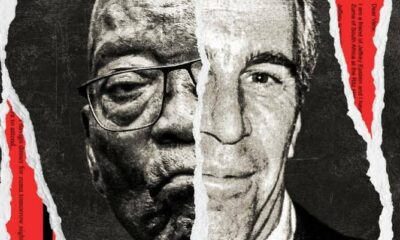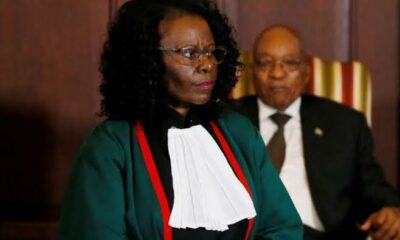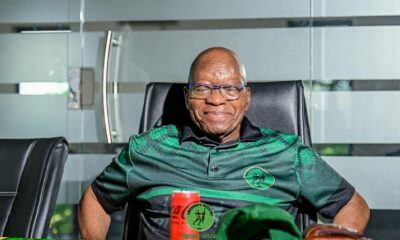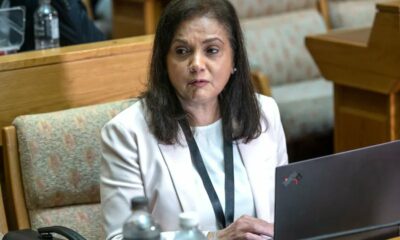News
Duduzile Zuma-Sambudla Faces Terrorism Trial: Political Drama, Public Memory and the Legacy of July 2021
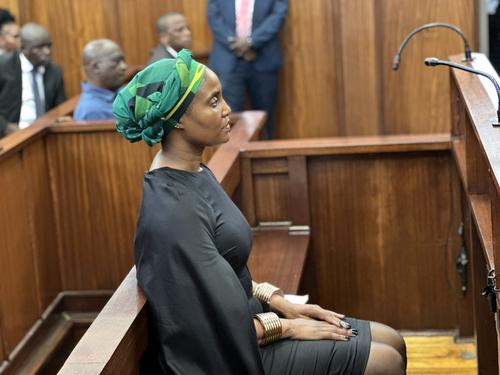
A Zuma on Trial, Again
South Africa’s political spotlight will once again fall on the Zuma family next week as Duduzile Zuma-Sambudla, daughter of former president Jacob Zuma, appears in the KwaZulu-Natal High Court in Durban. She faces charges of incitement to commit terrorism and public violence linked to the devastating July 2021 unrest that left more than 350 people dead in KwaZulu-Natal and Gauteng.
For many South Africans, the announcement feels like déjà vu, another Zuma in the dock, another courtroom battle drenched in politics, public opinion, and memory of chaos.
From Tweets to Terrorism Charges
Zuma-Sambudla’s trial is scheduled to run from 10 to 21 November 2025, according to the Office of the Chief Justice. Her defence, led by Advocate Dali Mpofu, is expected to fight hard to have the charges dismissed.
The National Prosecuting Authority (NPA) is relying heavily on a forensic report compiled by Forensics for Justice’s Paul O’Sullivan, which tracks Zuma-Sambudla’s social media activity during the 2021 riots. The report alleges she used her platform with over 360,000 followers on X (formerly Twitter) to amplify unrest following her father’s arrest for contempt of court.
One now-infamous post showing scenes of burning malls and looting was captioned simply, “We see you.”
To her critics, that message fanned the flames of violence. To her supporters, it was political expression a cry of solidarity amid perceived injustice.
The 2021 Unrest: South Africa’s Dark Week
The July 2021 riots remain one of South Africa’s most traumatic modern events. Sparked by Jacob Zuma’s imprisonment, the unrest spiralled into days of mass looting, arson, and violence that crippled businesses, disrupted supply chains, and reportedly cost the economy over R50 billion.
Entire communities in KwaZulu-Natal and Gauteng were left in ruins. More than 350 lives were lost not just statistics, but families torn apart, livelihoods destroyed, and an already fragile nation pushed to the brink.
The government has since struggled to hold anyone truly accountable for orchestrating the chaos. Zuma-Sambudla’s case, therefore, carries enormous symbolic weight: it’s not only about her, it’s about whether South Africa can draw a line under one of its darkest chapters.
The Political Undercurrents
Zuma-Sambudla, now a Member of Parliament for the MK Party, is no stranger to controversy. Her fiery political presence and unwavering defence of her father have made her both a hero to Zuma loyalists and a lightning rod for critics who accuse her of stoking division.
Her legal team has already made moves to challenge the state’s decision to indict her. They’ve written to National Director of Public Prosecutions Shamila Batohi seeking to overturn the charges after a previous plea to KZN DPP Elaine Zungu failed.
The optics of the trial are complex: a Zuma being tried in Zuma territory, defended by Mpofu, a heavyweight known for politically charged courtroom showdowns. For some, it’s justice delayed. For others, it’s political theatre.
Social Reaction: A Nation Divided
Social media has once again become the battlefield. Hashtags like #HandsOffDuduZuma and #JusticeForJulyVictims have resurfaced, mirroring the country’s deep political divide.
One X user wrote:
“They’re targeting Duduzile because she’s a Zuma, not because of justice.”
Another countered:
“If we’re serious about democracy, no one should be above the law, not even a Zuma.”
These contrasting voices reflect a nation still haunted by that week in July and still struggling to agree on who should take responsibility.
Beyond the Courtroom
Whatever the verdict, the Duduzile Zuma-Sambudla trial is more than a legal proceeding. It’s a test of South Africa’s democratic institutions, a measure of how far the justice system has come and how much it still owes victims of the unrest.
As the Durban High Court prepares to open its doors next week, South Africans are watching closely. The question is not just whether Duduzile Zuma-Sambudla will be found guilty or innocent, but whether justice, in a nation scarred by inequality and political loyalty, can truly be seen to prevail.
{Source: The Citizen}
Follow Joburg ETC on Facebook, Twitter , TikTok and Instagram
For more News in Johannesburg, visit joburgetc.com



